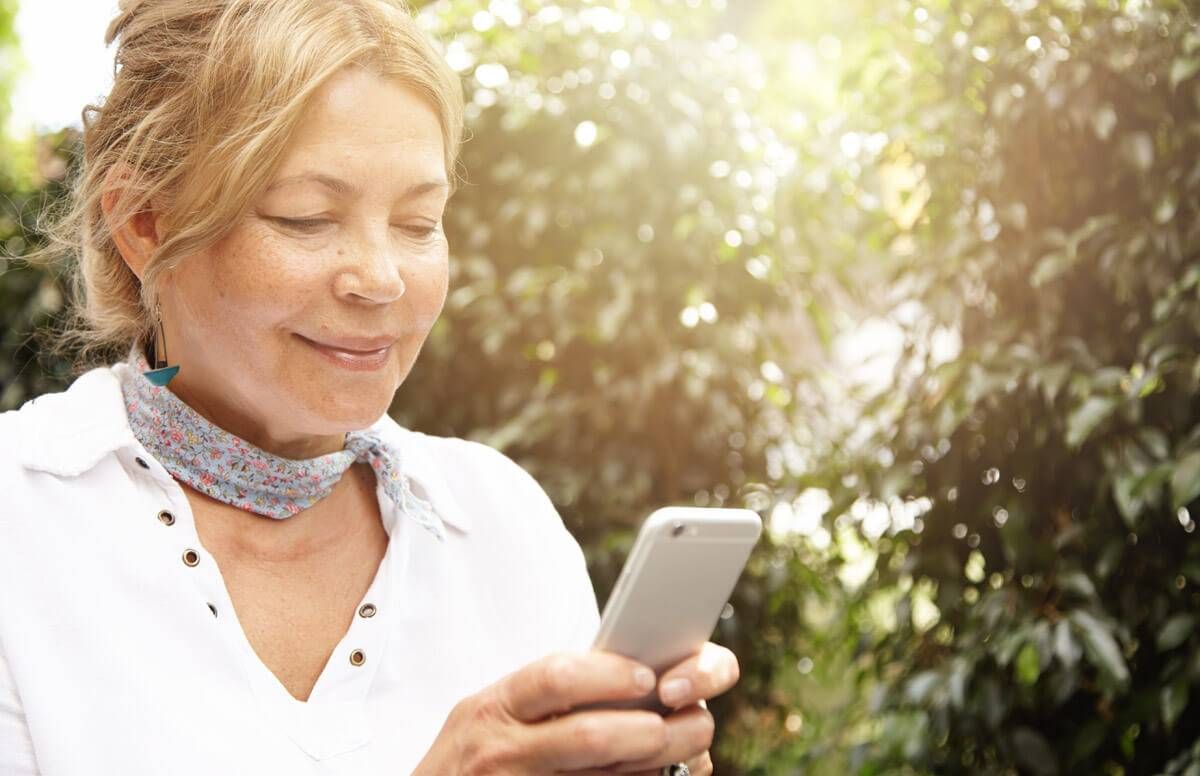Should I Accept a Date By Text?
The great-great grandson of Emily Post answers readers' dating questions

Editor’s Note: In April, we asked Next Avenue readers to submit their questions about dating and relationships after 50. We received many thoughtful inquiries that touched on a wide range of topics. With this story, we are launching a six-part series called "Dating After 50" and will be featuring stories on subjects including online dating, finding new places to meet people, dating after cancer and sex and dating, throughout the summer.

While the “rules” of dating may have changed over the years, one basic principle remains the same: it’s important to enter into any type of relationship honestly and authentically, no matter your age.
But some Next Avenue readers are curious about today's rules and posed questions specifically about the particulars of dating in 2019: Is there a new dating protocol? Who pays? And…who texts?
For answers, we went to Daniel Post Senning of The Emily Post Institute, based in Burlington, Vt. Senning is the great-great grandson of Emily Post, author of the groundbreaking Etiquette: In Society, In Business, In Politics and At Home, which was released in 1922. Emily Post went on to become a syndicated columnist; her expert advice on social mores and etiquette was heralded by generations and her legacy continues today.
"You want to be sincere with people. Be genuinely authentic, and don't try to be someone that you are not."
Senning is the author of Manners in a Digital World: Living Well Online and co-author of the 19 edition of Emily Post’s Etiquette. He and his cousin Lizzie Post are co-hosts of “Awesome Etiquette,” a podcast from American Public Media. According to Senning, the podcast has become the Institute’s “favorite vehicle for having contemporary discussions about etiquette today.”
In a recent interview with Next Avenue, Senning answered these questions posed by our readers:
What is the proper etiquette for dating if one is an over-60-year-old widow?

The basics are the same no matter who you are or what your age. Whether you’re twenty-five, forty-five or sixty-five, dating can always feel awkward. But committing to our core principles of etiquette at The Emily Post Institute — consideration, respect and honesty — is what matters in how you take care of yourself and others.
You want to be sincere with people. Be genuinely authentic and don’t try to be someone that you are not. It’s important to be honest. Have respect for yourself, and for other people, and don’t forget that you are worthy of the same respect you are showing to others.
I was married for almost 40 years; my husband died last fall. I would like to start dating again, but I’m not sure if there is a time frame that you are supposed to wait.
Traditionally, the period of mourning used to last for about a year; it would determine everything from the kinds of social events you’d attend to the type of clothing you wore during that time. Today, these ideas aren’t practiced universally. It’s more about being honest with yourself and deciding when you feel ready to date.
In some situations, a death has been long expected, and the surviving spouse might be more ready. In other cases, if a loss comes quickly, there may be a different level of readiness. Some who are widowed might be ready to start meeting people again, but not necessarily ready for dating. Know what you’re interested in and be honest with yourself and others.
When I was dating in my twenties, it was generally assumed the man would pick up the tab if we went out. The woman would make the meals if the man came over to her place. Given that I will be dating men in my generation, is this still the accepted practice?
Etiquette is a combination of manners and principles; manners, especially in social situations, can be comforting and grounding when you know what to expect.
There is a tradition and history of gender courtesy and manners, and these types of courtesies tend to matter most to people who grew up with them. In this case, for instance, men would pick up the check. Men can still do that, but what’s important now is for them to ask permission first to perform a courtesy: ‘May I get the door for you?’ or ‘May I pay for our coffee?’
What we believe is that whomever is doing the inviting is officially the host, so that person is the one who should be prepared to cover the expenses. It’s certainly acceptable to split the tab, but ask first. And don’t insist on paying if the other person prefers to split it.
If you want to invite someone over to your home for a meal, be specific (rather than just asking if they want to ‘hang out’) and establish the date and time. Then the expectations are set that you will be paying for and making the meal.
I am over 50 and do not use dating websites. I have only accepted dates from people I have met at social events or through being ‘set up.’ I’ve been surprised at the number of times I’ve been asked out on a date via text messaging versus a phone call. Is this the new norm?
Yes, it’s definitely happening. However, ‘asks’ are definitely more personal by phone — when you can tell the pacing and inflection of someone’s voice — or in person when you can read body language.
If you aren’t comfortable with a text exchange, tell the other person, ‘I’d love to hop on a phone call to talk about this — I’m not a big texter.’ Don’t make it an ultimatum for whether or not you’ll go on the date, but set expectations. And if the relationship progresses, you can talk about how you want to stay in touch.
Additional Thoughts on Dating
Senning also offered thoughts on what he says are two important considerations for those re-entering the dating scene: safety and an exit strategy if the relationship isn't a good fit.
According to Senning, while etiquette is an important part of a dating life, above all else, personal safety is the most essential. “You need to take care of yourself physically and emotionally at all times,” he says.
For that reason, he adds, it’s vital that all first meetings occur in public places during daylight hours.
“Always be very careful about giving out any personal information about yourself, such as a phone number or address, when you are first meeting,” Senning says.
As for ending a relationship, there is always a risk in trying something new and while sometimes relationships work, other times they don’t. Senning says having an “exit strategy” to end the relationship is also essential.
“The parting is as important as the greeting. It’s okay to end things after one date, or ten, or more. There is nothing that is owed,” he says.
The best way to break up? If you’ve been communicating primarily by text, it’s perfectly acceptable to end it the same way. If there have only been a couple of dates, ending things on the phone is completely fine, Senning says.
But "when a long-term relationship ends, an in-person meeting can allow both people to express their feelings and close the relationship,” he says, again, providing that safety is always a top-of-mind consideration.


